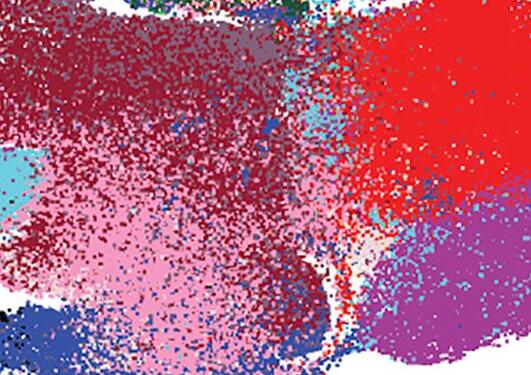Aging and cancer
Changes in breast tissue that increase cancer risk
A research team led by James Lorens at the Department of Biomedicine and CCBIO used new technology to determine how breast tissue changes with age may contribute to breast cancer risk. The research is published in Cell Reports, with a commentary on Eureka Alert.

Breast tissue stained for a luminal marker (green) and a myoepithelial/basal marker (red).
Photo:
Jonathan Lee
Main content
Updated: 05.03.2020 (First published: 30.04.2018)
Together with researchers in Switzerland and USA, the team discovered that multipotent progenitors - cells with the ability to develop into more than one cell type- accumulate in the breast tissue with age, while normal cells declined. This is understanding is important for improved early detection and treatment. The new technology (mass cytometry) allowed individual breast cells from 57 women aged 16-91 years to be studied at unprecedented resolution.
Commentary on Eureka Alert
James Lorens lab page at the Department of Biomedicine
